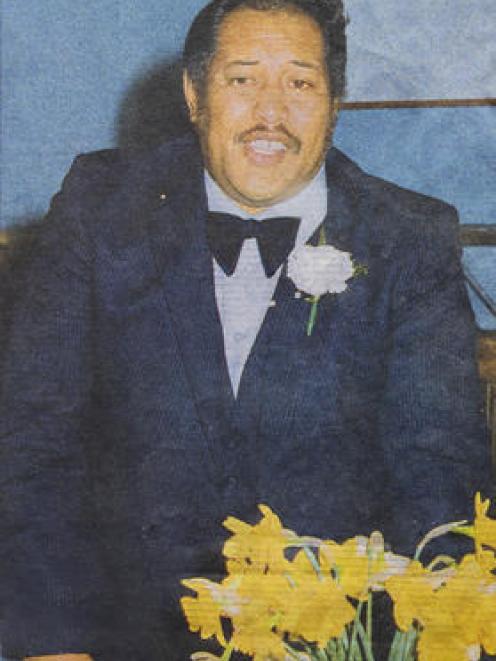
Lawrence Te-Iwi-Toa Kanohi was in his late 70s when he died earlier this month. He was paroled from prison several months ago to a secure medical care facility on the outskirts of the city, suffering from dementia. He had served nearly 30 years in jail for his reign of terror in the early 90s.
He affected literally hundreds of people in Christchurch – from the women he raped and the effect it had on their families, to the people whose homes he broke into and the lasting fear it instilled in them.
Police connected Kanohi to nearly 120 burglaries when he was arrested, but they are sure there were more.
He would steal cash, jewellery, music cassette tapes, electronic equipment women’s underwear – and photos of females who lived there, where he would put cartoon bubbles on them with comments like “sex is my thing”, “you turn me on” and “would you like to try”.
The burglaries were committed between 1983 and 1992, mainly in the Shirley, St Albans, Edgeware and Riccarton areas.
Kanohi was sentenced to preventative detention – an indefinite jail sentence – for two rapes and an attempted rape in Shirley and St Albans in 1992.
He had spent time in jail in the mid-60s for a rape in the North Island, and another attack in St Martins in 1972 when he blindfolded and trussed up a 62-year-old in her home.
The woman’s daughter told The Star this week her mother had later confided in a relative she had been raped, but would not say it at the time.
This was probably out of shame and to protect her family.
The effect on her mother and family had been devastating.
The attacks in 1992 were on a 51-year-old, and a woman in her mid-20s, who was attacked twice, the first an attempted rape after he broke into her house in February, the second when he again broke in and this time raped her a few days before Christmas.
It was the courage of her five-year-old daughter who was asleep in bed with the woman which led to Kanohi’s capture, The girl phoned her grandmother during the attack, saying a man was attacking “mummy”.
During his escape from the property he ended up in the yard of a nearby resident who was alerted by his security lights going on. He and Kanohi wrestled on the ground until police responding to the rape arrived.
After his arrest, the woman was horrified to find Kanohi was the man who had come to her door a year before, claiming to have run out of petrol. She let him use the phone and he left a $2 coin.
Clearly now stalking her, he returned two or three times over the following months with sweets for her two daughters, whom they came to call “the lolly man”.
The woman told The Star this week she received a letter on January 16 from the Department of Corrections notifying her Kanohi had died.
“I felt a sense of relief,” she said.
She was told last year he had been paroled to a secure dementia centre on the outskirts of Christchurch, despite her and other victims opposing his parole over the decades.
It had made her uneasy and anxious; she lives on the outskirts of Christchurch now and she always wondered if she might see or bump into him on the supervised visits she was told he was allowed to do.
Kanohi’s death had released her from that, but she had spent years suffering from the attacks.
“It affected me so badly, it changed how I saw people, it affected my parenting. It really affected my parenting. I couldn’t relax and enjoy being a parent,” she said.
But finally seeing “a really good counsellor” had turned her life around. She was told she hadn’t moved out of fight or flight. She couldn’t relax.
“I thought I was going mad. It was all of the effects of what had happened to me. I’m not the same person I was. It changed how I saw people, trusting relationships,” she said.
Kanohi was a Jekyll and Hyde. He was well liked by his friends, he worked as a truck driver and his boss said he was one of his better workers.
He was president of a softball club and coached the women’s team. He was generous with his money, and women adored him.
Even after his arrest and the compelling evidence against him, some women who were close to him still refused to believe what he had done.

After raping the 51-year-old he told her: “You are a very nice person. I wish I could have met you in different circumstances.”
Before he left, he even asked her for a kiss. She refused.
“I think he thought of himself as Mr Wonderful,” she said.
Retired detective Brendan Bateman, who headed the Kanohi investigation, said he was the most devious, cunning and calculating criminal he dealt with.
“He was a jovial, likeable character you would see playing the guitar in a sports club. But behind that he was cruising like a shark waiting to attack,” he said.
Bateman recalls going to the police station cells in the hours after his arrest. Kanohi was asleep, and woke when the cell door opened.
“Gidday Brendan,” Kanohi said, remembering the detective who had dealt with him years before.
Kanohi was relaxed and calm as if nothing had happened, Bateman said.
One woman spoke this week of an intruder, almost certainly Kanohi, trying to break into her St Albans house on two occasions while she was home alone, just after her partner had left for work in the early hours of the morning. Her house also had been previously burgled.
Thirty years on, it still affects her. It would be no coincidence their home had been previously burgled. She believes Kanohi had been watching the house, striking when he saw her partner leave for work. A few minutes later she heard a window rattling, definitely someone trying to break in.
“There were no cellphones in those days and I didn’t think I could get to the phone in the hallway. I had the choice of going to the hallway and not making it in time to the phone or barricading myself in the bedroom (with furniture),” she told The Star.
She barricaded herself in the bedroom. Footprints were found the following morning on the outside windowsill.

He wouldn’t have been able to reach down to open the main window latches and he was too fat to get in through the smaller window.
About two weeks later there was another break-in attempt, again just after the woman’s partner had gone to work.
This time the intruder used part of a clothesline on the property to get better leverage and position in a bid to open the main window, but again he failed to get in.
“He was a fat little fellow so he couldn’t get through (the smaller window) and he wasn’t tall enough to reach down to the other window, so he came back and tried another way of getting in,” she said.
After Kanohi was arrested police found in his car glove box a family photo taken during the burglary of the woman’s home.
Of Kanohi’s death, she said: “It does feel like a relief even though it was 30 years ago. I didn’t feel a tinge of sadness when I heard about it.
“What happened changed the way I feel about security forever. We upped (security) 1000 times after what happened, even now when I am home (alone) I am always very wary. So what happened 30 years ago has always affected me.”
And would the world have been a better place if Kanohi had never been born, as some people have told The Star: “Yes I do agree with that,” she said.













